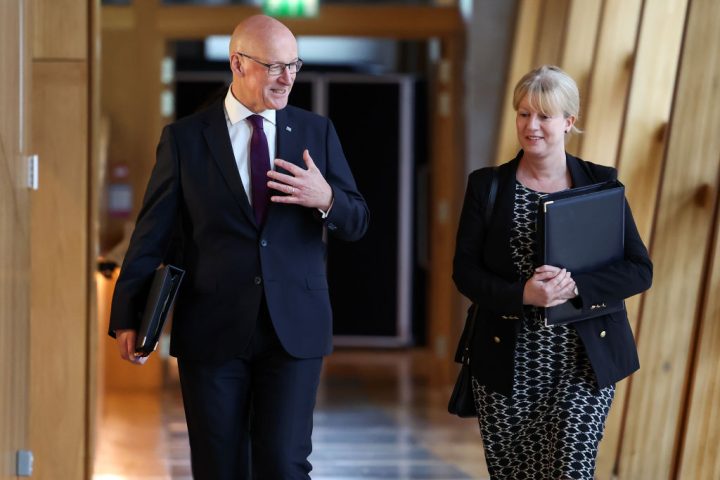The Scottish government has published its latest Government Expenditure and Revenue Scotland (Gers) report, the official statistics outlining how much tax is raised in Scotland versus public spending for and on behalf of the country.
The numbers have been followed with interest over the past decade because they give as accurate a view as possible of the starting fiscal position of any newly independent Scotland. They therefore provide an insight into the budget challenges the newly seceded state would face if the current Scottish government’s constitutional preference were to come to fruition. So what do this year’s numbers show?
The main driver of the widened deficit is a fall in North Sea oil and gas revenues
For a Scottish government still intent on promoting secession, the latest analysis does not look good. Scotland is running a deficit of almost £23 billion, representing 10.4 per cent of its GDP – up 2 per cent from the previous year. Excluding oil and gas revenues, which in recent years the SNP has taken to defining as an economic ‘bonus’ not be included in day-to-day spending calculations for an independent state, the deficit stands at 13.2 per cent of GDP.
By comparison, the UK deficit for the same period improved by 0.5 per cent, taking it to 4.5 per cent of UK GDP, while the latest figures for the EU’s deficit (to the end 2023) puts it at 3.5 per cent of the bloc’s GDP.
The Gers figures show Scotland’s revenues in 2023-24 grew by £1.7 billion to reach £88.5 billion, while expenditure increased to £111.2 billion, from £104.9 billion in 2022-23. At 51 per cent of GDP, public spending is at historically high levels in Scotland, and is around five percentage points higher than prior to the pandemic. The numbers also show that Scots benefit from £2,417 more per head of additional spending compared to the UK average.
The main driver of the widened deficit is a fall in oil and gas revenues from the North Sea on the back of lower energy prices. Those revenues have halved, to sit at £4 billion.
The numbers are a return to what can be thought of as a normal position for Scotland following the historic anomaly of the pandemic emergency and immediate post-pandemic inflation crisis. That is not to say the deficit is a reflection of a weak Scottish economy, which is relatively good at generating taxes. Rather, the persistent large deficit is a function of Scotland’s ingrained high spending.
The obvious conclusion to draw from the statistics is that, whether through independence or full fiscal autonomy within the UK, crystalising what is currently a large notional deficit as a real, Scotland-only liability is clearly not in the interests of the Scottish people. Indeed, combine that deficit with the country’s other large persistent deficit – trade – and it seems clear the government of a newly seceded state would immediately find itself grappling with a severe economic crisis.
Yet incredibly, the SNP administration is still wedded to using the Gers numbers to promote independence. Scotland’s finance minister, Shona Robison, responded to the publication of the latest figures by stating the plus-10 per cent deficit is a reflection of ‘UK government choices’.
‘As an independent nation, we would have the powers to make different choices,’ she said, no doubt trying to give the impression that an independent Scotland would somehow both improve peoples’ lives while bringing its deficit at least in line with international norms. The fiscal reality would more likely be austerity on steroids.
Robison’s statement was a continuation of the messaging of the Sturgeon era. Post the general election, this seems weirdly inappropriate. The populist bubble has been burst in the UK. Government is becoming a bit boring again: less emotional, more technocratic, despite this month’s troubled streets and far-right goading of the mob.
The SNP suffered a major defeat at the general election. ‘The cause’ is clearly on the wane. In this context, deflecting from reality simply reminds us of the foolish populist tactics of the failed politicians of yesterday.
Scotland is moving on from this type of politics, and SNP politicians are clearly struggling to deal with that. But at some point they will have to accept that ten years of populism has run its course. Accepting the reality of the Gers statistics would signal the SNP administration is ready to grapple with the new political era we have moved into. But they’re not there yet.








Comments